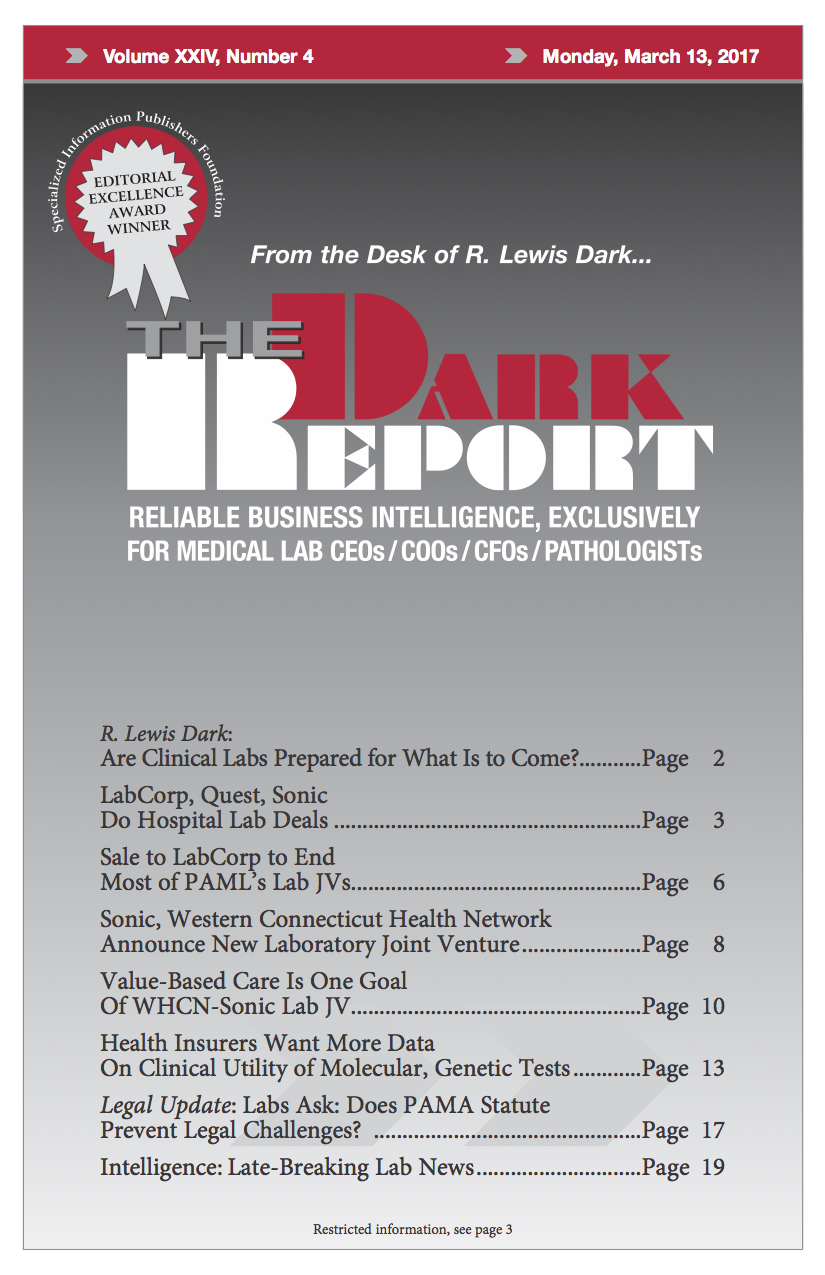CEO SUMMARY: Genetic tests that lack two essentials are troublesome for the nation’s health insurers. Those essentials are clinical validity and clinical utility. During a recent webinar, two executives from major health insurers stressed the need for genetic testing labs to provide acceptable evidence that their genetic test is accurate and that it produces information …
Health Insurers Want More Data On Clinical Utility of Molecular, Genetic Tests Read More »
To access this post, you must purchase The Dark Report.


